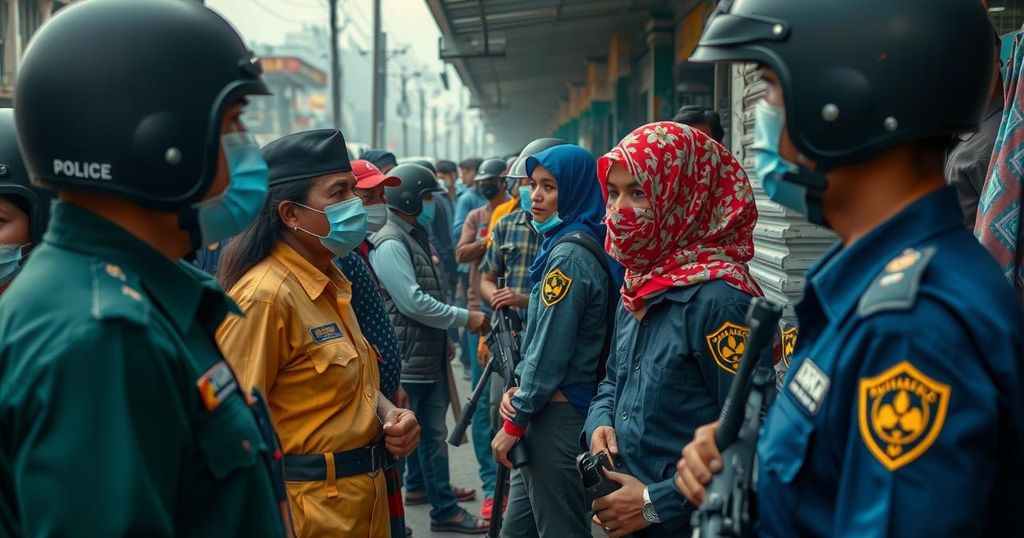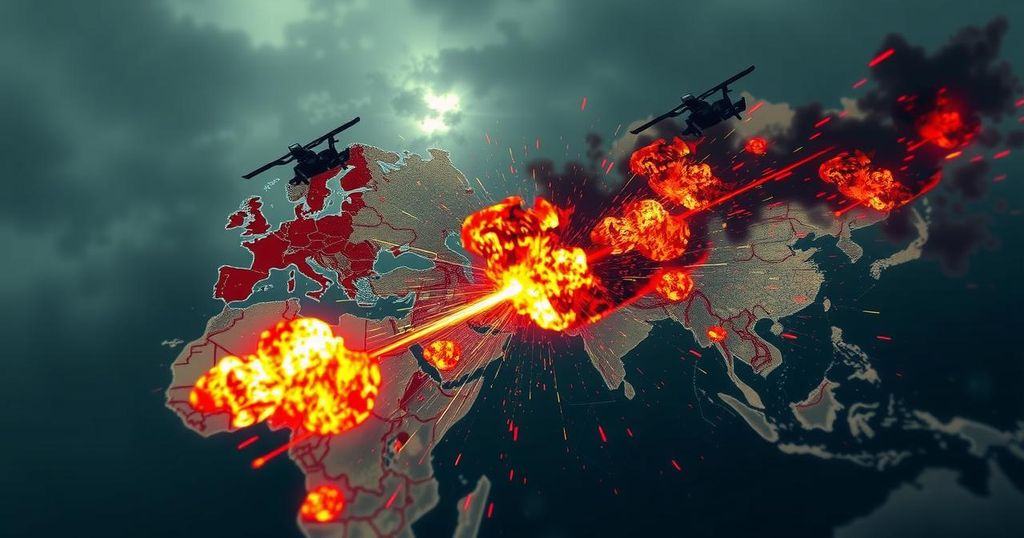China and Brazil’s Peace Initiative at the UN Faces Opposition from Ukraine
China and Brazil are advocating for a peace plan to resolve the Ukraine conflict, despite Ukrainian President Zelenskyy’s criticism labeling the initiative as supportive of Russian interests. U.S. Secretary of State Antony Blinken has voiced concerns over China’s cooperation with Russia, while Zelenskyy has met with former President Trump, aiming to secure U.S. support amid geopolitical tensions. The situation remains complex as Finland bolsters its NATO presence and Russia claims territorial advances amid scrutiny over its military actions and humanitarian impacts.
On Friday, China and Brazil continued to advance a proposal aimed at uniting developing nations behind a peace plan to resolve the ongoing conflict in Ukraine, notwithstanding Ukrainian President Volodymyr Zelenskyy’s rejection of the initiative. The meeting, attended by representatives from seventeen countries, was led by China’s Foreign Minister Wang Yi and Brazilian Foreign Policy Adviser Celso Amorim during the United Nations General Assembly. Minister Wang emphasized the imperative to avoid escalation in the war, the use of weapons of mass destruction, and attacks on nuclear facilities. In his address to the assembly earlier this week, President Zelenskyy expressed concerns regarding the motivations behind China’s and Brazil’s propositions, arguing that such alternative plans merely provide Russia with diplomatic leeway to prolong the war. He criticized these proposals as “half-hearted settlement plans” that would undermine Ukraine’s position. During a subsequent meeting with Wang, U.S. Secretary of State Antony Blinken expressed alarm over China’s continued support for Russia’s military capabilities. He noted, “China… is allowing its companies to take actions that are actually helping Putin continue the aggression. That doesn’t add up.” Furthermore, South Korea’s Foreign Minister highlighted allegations of an illegal arms trade between Russia and North Korea, stating that Pyongyang has been supplying munitions in exchange for military aid. Concurrently, Zelenskyy held a strategic meeting with former U.S. President Donald Trump in New York, amid rising tensions between the Ukrainian leader and Republican lawmakers. As concerns mounted about future military aid to Ukraine depending on the outcome of the upcoming presidential election, Trump assured Zelenskyy that if he were to win, he could swiftly resolve the conflict. Zelenskyy later characterized the discussion as “very productive,” asserting that both leaders are aligned in their desire to cease hostilities with Russia and ensure Ukraine’s victory. In related developments, Finland announced plans to establish a key NATO military base near its border with Russia, signaling a shift in its defense posture following the invasion of Ukraine. Meanwhile, Russia reported the capture of Marynivka, a village in eastern Ukraine, although Ukrainian sources contested this information. Additionally, three foreign journalists faced investigations by Russia for supposed illegal reporting in occupied territories, and a Moscow court commenced proceedings against a U.S. national accused of mercenary activities in Ukraine. Tragically, a Russian missile strike in Kryvyi Rih resulted in several casualties, while concerns arose regarding a possible breach of Romanian airspace by a Russian drone during an assault on Ukraine.
The ongoing conflict in Ukraine, which escalated significantly after Russia’s invasion in February 2022, has drawn international attention and prompted various nations to propose peace initiatives. In this context, China and Brazil, representing developing countries, have sought to create an alternative peace framework distinct from those presented by Ukraine. President Zelenskyy’s administration has expressed skepticism towards these initiatives, viewing them as less forthcoming in addressing the complexities of the war and potentially beneficial to Russia’s strategic aims. This geopolitical tension is further complicated by the involvement of the United States and its allies, apprehensive of any actions that may bolster Russian interests or military capacity. The unfolding dialogue among world leaders at the United Nations serves as a critical barometer of international positioning on the Ukraine crisis, while bilateral discussions, such as those between Zelenskyy and Trump, could influence future diplomatic and military support for Ukraine.
In summary, the meeting led by China and Brazil at the UN General Assembly highlights the efforts of developing countries to propose a peace plan for Ukraine, despite Ukrainian President Zelenskyy’s objections regarding its efficacy and potential complicity with Moscow’s interests. This initiative coincides with mounting concerns from the United States over China’s role in the conflict. Furthermore, high-stakes discussions between Zelenskyy and Trump reveal the ongoing complexities of international diplomacy surrounding the Ukraine war. The interactions among global leaders, including Finland’s strategic military adaptations and Russia’s assertions of territorial gains, underscore the persistent volatility of the situation.
Original Source: www.theguardian.com








Post Comment